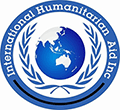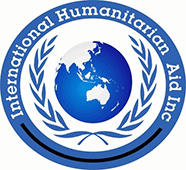Who We Are
International Humanitarian Aid dedicated to working with children, families, and their communities worldwide to reach their full potential by tackling the causes of poverty and injustice.
Our Impact
On Drinking Water
Every child deserves clean water. However, more than 1,600 children under age 5 die every day from diarrhea caused by unsafe water — that’s more than AIDS and malaria combined. Clean water, basic sanitation, and hygiene education are some of the most effective ways to prevent child disease and death.
On Disaster Relief
More than 90 percent of natural disaster-related deaths occur in developing countries, where poverty and lack of resources exacerbate the suffering.
Through Microfinance and More
1.3 billion people worldwide are living on less than $1.25 a day. When you’re that far behind, it’s hard to get ahead. That’s why we facilitate savings groups, improve market development, and provide access to microfinance, helping to break the cycle of poverty
On Global Education
67 million primary-school-age children are not enrolled in school. These children are at greater risk for exploitation, early marriage, and lower income-earning potential. We address barriers to education and work with communities and local governments to improve the quality of education children receive.
On World Hunger
One in eight people in the world do not have enough to eat. Many poor farmers are unable to grow enough food to feed their own families, much less sell for additional income. That’s why we partner with communities to address immediate food needs — but also to grow sustainable food for the future.
On Global Health
Today, nearly 19,000 children under age 5 will die of mostly preventable causes, such as diarrhea, malaria, and pneumonia. We focus on child and maternal health, using basic medicines, supplies, and interventions to prevent and treat illnesses at the community level.
Our Mission Statement
Our mission is to save lives by eliminating hunger through the prevention, detection and treatment of malnutrition, especially during and after emergency situations of conflict, war and natural disaster. From crisis to sustainability, we tackle the underlying causes of malnutrition and its effects. By integrating our programmes with local and national systems we further ensure that short-term interventions become long-term solutions.

